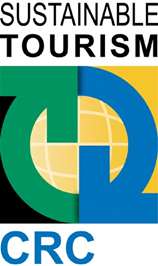
The Australasian Union of Jewish Students (AUJS) is a federation of Jewish student societies at Australian and New Zealand universities and other higher education institutions. It was founded in 1948 at the University of Sydney and is affiliated with the World Union of Jewish Students. AUJS' constitution lists its four pillars as Judaism, activism, Zionism, and pluralism. AUJS runs social, educational, political and religious events on University campuses.
The College of Advanced Education (CAE) was a class of Australian tertiary education institution that existed from 1967 until the early 1990s. They ranked below universities, but above Colleges of Technical and Further Education (TAFE) which offer trade qualification. CAEs were designed to provide formal post-secondary qualifications of a more vocational nature than those available from universities, chiefly in such areas as teaching, nursing, accountancy, fine art and information technology.
The Australian Student Environment Network (ASEN) is the national network of many campus environment collectives in Australia, formed at the 1997 Students and Sustainability convergence in Townsville. People from ASEN facilitate communication between environment collectives and co-ordinate national projects and campaigns. ASEN is particularly known for cultivating intersectional social justice analyses and critiques amongst young environmentalists, facilitating direct action campaigns, projects towards just transitions and indigenous solidarity work. ASEN is the longest running, and one of the largest, youth environment networks in Australia.
The National Association of Australian University Colleges Inc (NAAUC) is the peak representative body for students living on Australian tertiary campuses. As a non-profit association, NAAUC aims to coordinate communication between a network of residences on a national scale, foster goodwill amongst association members, and liaise with college heads and administration in order to provide the best possible advice and referral to Australian colleges, residential halls of residences and student villages.
The Apple University Consortium is a partnership between Apple Australia and a number of Australian universities. Every two years it holds the AUC Academic & Developers Conference in an Australian city. It also sponsors subsidised seats to the WWDC conference in San Francisco each year for university staff and students.
The Higher Education Support Act (HESA) 2003 codifies the existing aims of universities, recognises the status Universities of Australia in law, and introduces measures to strengthen Australia’s knowledge base.

The Australian and New Zealand Association for the Advancement of Science (ANZAAS) is an organisation that was founded in 1888 as the Australasian Association for the Advancement of Science to promote science.

The Young Scientists of Australia are a collection of not-for-profit organisations dedicated to the promotion of science in Australia to the 14-25 year old demographic. The chapters are located in Adelaide, Brisbane, Melbourne and Sydney and are run independently.
This article is a summary of academic grading in Australia.
The Australian Intervarsity Choral Festival is an annual event in which members of university choirs from all state capitals of Australia and the national capital Canberra meet for two weeks to rehearse, socialise and perform combined concerts. The Festival also serves as the annual conference of the member choirs of AICSA, the Australian Intervarsity Choral Societies Association
Vivienne Joyce Binns is an Australian artist known for her contribution to the Women's Art Movement in Australia and her active advocacy within community arts. She works predominantly in painting and teaches at the Australian National University, Canberra.

Sustainable Tourism Cooperative Research Centre (STCRC), headquartered in Gold Coast, Queensland, was an Australian Cooperative Research Centre established by the Australian Government's Cooperative Research Centres Program to establish a competitive and dynamic sustainable tourism industry in Australia. It ceased to operate on 30 June 2010.

Baseball at the Australian University Games has been part of the Australian University Games program since the 2004 games. The games are held in the last week of September during mid-Semester break. The reigning champions and most successful team is The University of Sydney who are members of the Sydney Uni Baseball Club.
The Council of International Students Australia, or CISA, is the peak representative body for international students in Australia. CISA was founded on 7 July 2010 in Hobart, Tasmania and provides member associations with representation to the Federal government, and peak bodies such as the Australian Research Council, English Australia, ACPET (Australian Council for Private Education and Training, TAFE Directors Australia and Universities Australia, on issues affecting international students in Australia.
The 2017–18 Y-League was the tenth season of the Australian Y-League competition.
The 2018–19 W-League season was the eleventh season of the W-League, the Australian national women's association football competition.




